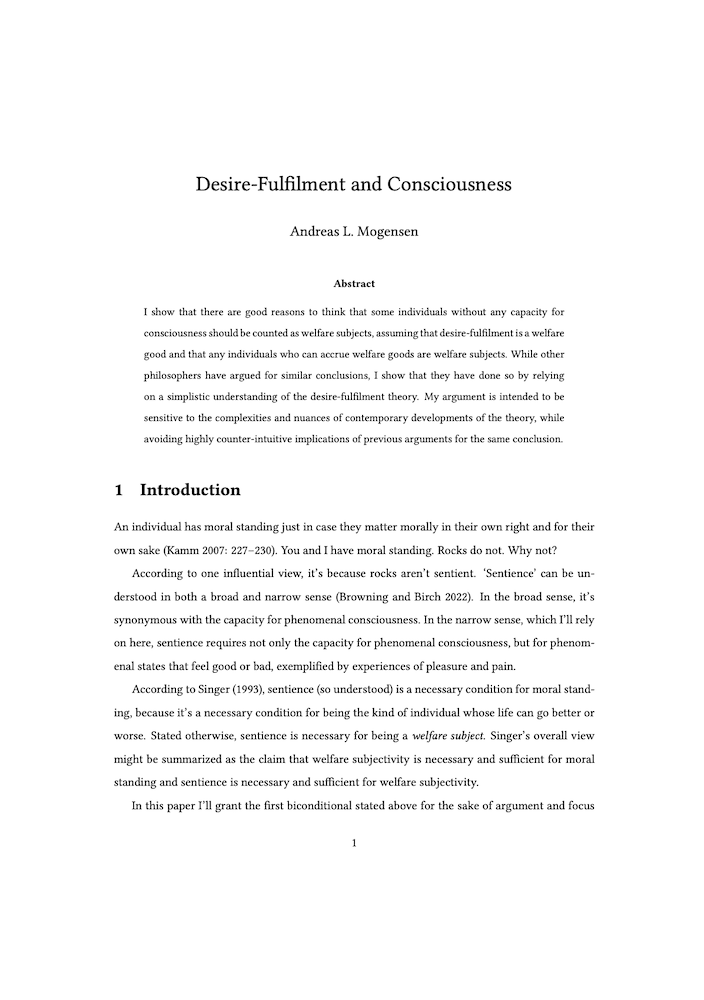Desire-Fulfilment and Consciousness
Andreas Mogensen (Global Priorities Institute, University of Oxford)
GPI Working Paper No. 24-2024
I show that there are good reasons to think that some individuals without any capacity for consciousness should be counted as welfare subjects, assuming that desire-fulfilment is a welfare good and that any individuals who can accrue welfare goods are welfare subjects. While other philosophers have argued for similar conclusions, I show that they have done so by relying on a simplistic understanding of the desire-fulfilment theory. My argument is intended to be sensitive to the complexities and nuances of contemporary developments of the theory, while avoiding highly counter-intuitive implications of previous arguments for the same conclusion.
Other working papers
The Hinge of History Hypothesis: Reply to MacAskill – Andreas Mogensen (Global Priorities Institute, University of Oxford)
Some believe that the current era is uniquely important with respect to how well the rest of human history goes. Following Parfit, call this the Hinge of History Hypothesis. Recently, MacAskill has argued that our era is actually very unlikely to be especially influential in the way asserted by the Hinge of History Hypothesis. I respond to MacAskill, pointing to important unresolved ambiguities in his proposed definition of what it means for a time to be influential and criticizing the two arguments…
How to resist the Fading Qualia Argument – Andreas Mogensen (Global Priorities Institute, University of Oxford)
The Fading Qualia Argument is perhaps the strongest argument supporting the view that in order for a system to be conscious, it does not need to be made of anything in particular, so long as its internal parts have the right causal relations to each other and to the system’s inputs and outputs. I show how the argument can be resisted given two key assumptions: that consciousness is associated with vagueness at its boundaries and that conscious neural activity has a particular kind of holistic structure. …
Measuring AI-Driven Risk with Stock Prices – Susana Campos-Martins (Global Priorities Institute, University of Oxford)
We propose an empirical approach to identify and measure AI-driven shocks based on the co-movements of relevant financial asset prices. For that purpose, we first calculate the common volatility of the share prices of major US AI-relevant companies. Then we isolate the events that shake this industry only from those that shake all sectors of economic activity at the same time. For the sample analysed, AI shocks are identified when there are announcements about (mergers and) acquisitions in the AI industry, launching of…

